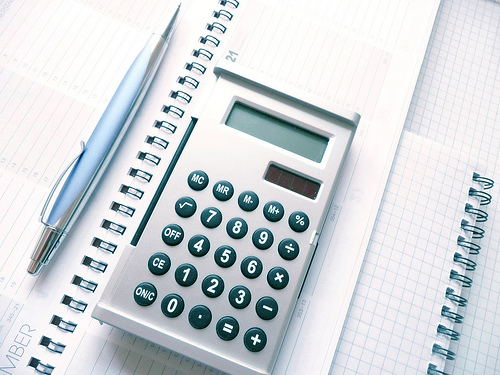
by Adam | Jan 5, 2016 | Credit Repair
When you open a new account with a bank or financial institution, they will often ask if you’re interested in opening a “line of credit.” This is meant to be a form of overdraft protection – essentially a buffer in case of a financial emergency. Basically, if you were to use your debit card for a purchase exceeding your available funds, the balance would be transferred to your line of credit attached to your account, and you would be subject to the interest rates and payment schedule to which you agreed when you signed up. While this resource can be a great asset for some, it can easily be misused and end up dinging your credit score. Here are some things to keep in mind if you opt for opening a personal line of credit: Credit utilization rate An important component of your credit score is your “credit utilization rate.” This refers to the amount of credit you use compared to the amount of credit available to you. If you always have a high balance on your line of credit, this reflects poorly on your credit and can lower your score. The best line of credit scenario If you’re expecting a payment but needing to pay a bill, a line of credit would be a good option because the balance would be paid down. Use your line of credit only for purchases you can afford. Those whose income is commission-based, for example, may have a stable and significant annual income but that is variable month-to-month. Those individuals would benefit greatly from a line of credit. Activity matters If you...

by Adam | Dec 28, 2015 | Credit Repair
The holidays are over, presents have been unwrapped, the tree has come down, ornaments stowed neatly away, new toys put in their place, but unfortunately the leftover bills aren’t so easy to clean up. You can’t undo the purchases you’ve made, but you can control how long you stay in debt over them. If you ended up in debt to pay for Christmas this holiday season, then here are some great tips to help you pay off those bills quickly. Out With the Old Now that you have bright, new, shiny stuff in your closets, it’s time to clear out the old things. If you are patient and willing to put in a little time and effort you can make money selling your old things. Any items that are in good condition can be sold; the rest can be donated or thrown away. You can list items in your local classifieds or online classified ads. Facebook is also a good place to list things for friends and neighbors to see; some neighborhoods even have yard sale pages. While you’re at it, get your family involved too! Kids are generally more willing to part with old toys when they’ve just gotten new ones, and they most likely have clothes from last year that they’ve outgrown. New Budget If you racked up a large amount of debt then you are going to have to tighten your budget for a few months. For those that are already budgeting, you will need to squeeze those numbers even more. For those of you just starting, this is the perfect time to begin. Either way, you...

by Adam | Dec 21, 2015 | Credit Repair
Have you tried saving for something in the past and ended up spending the money on something else first? Creating a sinking fund may be just the answer you’re looking for! What is a Sinking Fund? A sinking fund is simply a savings account set aside for a specific purpose. It could be Christmas, a child’s birthday, car payment, or a vacation savings fund. You set aside a certain amount of money monthly to go to this account in order to pay for the item at a later date. Christmas is the best example. It happens every year, and yet to many it comes as a surprise and there is no money to buy gifts. By creating a sinking fund you can put away enough money to pay for everything you need next year. What Do I Do? Fist, decide what you are saving the money for; it could be something inexpensive that takes only a month or two to save, or it could be something that takes a year or more to save enough money to purchase. Once you know what your goal is and how much money you need to save in total, now divide that number by how many months you have until you need to pay this total amount. That will give you the amount you need to set aside monthly to meet your goal. Where Do I Put the Money? There are a few options available, you can make a new savings account just for this item, or, if you’re a Dave Ramsey fan, you can save actual cash in an envelope. If you...

by Adam | Dec 15, 2015 | Credit Repair
An error on your credit report can damage your score, which is why it is important to inspect your report thoroughly. If you do find a mistake follow these 4 steps to get the problem resolved. Step 1 – Analyze The Report When you receive your credit report look it over carefully to make sure it is accurate. If you find a mistake you may be tempted to file a claim immediately. Before you start this process, do a little research on your end to make sure it is, in fact, an error. For example, some credit cards may be stated as the parent company instead of the actual card name on your report. Step 2 – File the Claim Once you decide to file a claim you have two ways to do this: online or a physical letter. The credit bureaus prefer the online method, but your options available about the reason for your claim may be limited and not what you are looking for. The advantage of writing a credit dispute letter is that it gives you the ability to fully state and explain the error. You also can make a copy for your records. Step 3 – Wait This step can take a while and try your patience, but because of the Fair Credit Reporting Act you are guaranteed a response within 30 days. It’s no wonder it takes a while to complete this step, there is lot happening behind the scene. While you are waiting, the credit-reporting agency will review your claim and turn it into a 3- digit code that specifies which category the claim fits in. Next...

by Adam | Dec 8, 2015 | Credit Repair
Your credit score can mean the difference between getting approved for a loan or not. Your score also has an impact on things like your loan interest rate, terms of that loan, and even more. Although many different factors go into determining your overall credit score, there are five general categories that are used to calculate all the data. Here is a quick recap of what those categories are. Payment History – 35% This is the most heavily weighted category, comprising thirty five percent of your total score. Have you been paying your credit bills on time? If so, then you will have a much better rank in this category, which will boost your total score. Amount of Debt Owed – 30% This category factors in all the debt you currently own. This includes different types of debt accounts, the number of accounts you have open, and how close you are to the debt limit on each account. Having multiple debt accounts may not be detrimental to your score if they are managed wisely. Length of Credit History – 15% Older credit users are at a slight advantage in this category, but even new credit users can reach a high score if the other categories are in good standing. In this group your credit score is weighted based on how long your credit accounts have been in use, and the rate of usage on each one. Credit Mix – 10% Your credit score is also calculated, minimally, by the types of credit accounts you have open. These can include retail accounts, installment loans, credit cards, mortgage loans, and finance...

by Adam | Dec 3, 2015 | Credit Repair
College graduation is an exciting day, but statistics show that most college graduates are weighed down with student loan debt upon graduation. Not only can these loans can be tricky to pay off, but they also prevent graduates from investing and saving money for their future until the debt is gone. So how can you pay off student loan debt faster? Make Bigger Payments The fastest way to get rid of the student loan debt, if you are able to, is to pay more than your minimum payment amount each month. There are a few ways you can do this: either pay twice a month instead of once, or add extra money to your minimum monthly payment. Paying off your loan in this way will cut off years of payments and thousands of dollars in interest! Make a Budget and a Plan Unwritten goals are just dreams, as the saying goes. If you have a plan in place and a goal of when your debt will be paid off, then you are more likely to stick with it and maybe even be motivated to pay it off faster. This plan requires a basic budget as well so that you know where your money is going. By following your budget you will be sure your student loan payments aren’t being spent on say, groceries instead. Automatic Payments Along those same lines, you may want to set up a separate bank account just for this purpose. You can set up an auto payment so that portions of your earnings are deposited into the account regularly. This ensures that that money isn’t...








Recent Comments